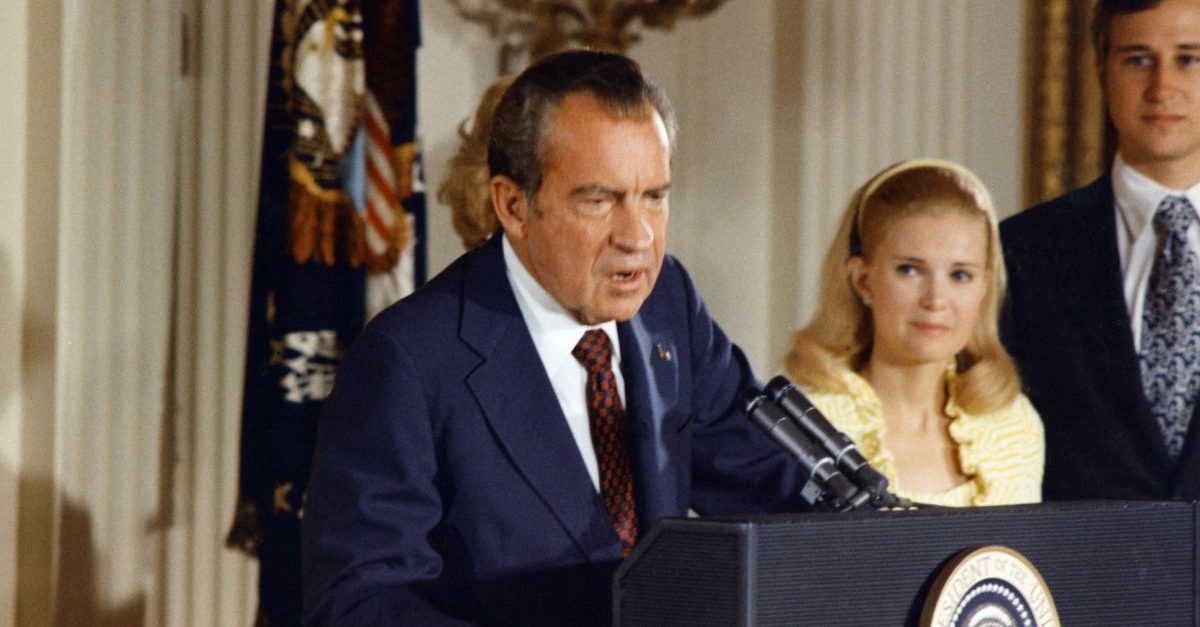
The House Judiciary Committee on Wednesday approved the use of a subpoena to demand a full, unredacted version of Special Counsel Robert Mueller‘s Russia report. Republicans are speaking out against this, claiming such a move would be “dangerous,” adding that it goes against Federal Rules of Criminal Procedure that generally prohibit the release of secret grand jury information. Attorney General William Barr has said that he plans on releasing a redacted version of the report, hiding such information, as well as other sensitive material, but Democrats claim this isn’t good enough.
To see how this might play out, one need only look to the days of President Richard Nixon. Many parallels have been drawn between the Russia probe and the Watergate investigation, and a very similar situation played out back then.
As discussed in a recent article for the Lawfare blog, a battle ensued when the House Judiciary Committee was looking into whether to impeach Nixon. Members of Congress were investigating the president and felt that the evidence compiled by a special prosecutor’s investigation would be of great significance. The problem, however, is that Rule 6(e) of the Federal Rules of Criminal Procedure says that information related to grand jury proceedings must not be disclosed, except for in limited circumstances.
One of those circumstances, however, is if a court orders the release of the information. Special Prosecutor Leon Jaworski pushed for this and Judge John Sirica heard arguments in March 1974.
Jaworksi, wary that that the evidence itself might be overwhelming or difficult for members of Congress to fully understand, felt the need to supplement it with his own document. He resisted the idea of issuing a report with his own conclusions, opting instead for a neutral “Road Map” as a guide.
Mueller seems to have done something similar with respect to the issue of whether President Donald Trump obstructed justice. The neutral approach that Mueller took on obstruction has been said by some legal experts to be a way to allow members of the House to review the evidence, should they consider impeachment.
Judge Sirica ultimately agreed to allow the grand jury information to be released to Congress, but not the public. That option could also theoretically work with the Mueller report. Ironically, one factor that played into the judge’s decision was the fact that Nixon himself agreed to the disclosure. Similarly, President Trump has encouraged the release of the Mueller report. As for other individuals (like Roger Stone) who are facing prosecution and wouldn’t want information to get out, the restricted nature of the release to only Congress would protect them. In a memo, Jaworski himself shared this concern regarding individuals besides Nixon and possibly “jeopardizing the fairness of their trials.”
The rest was history. The House got their evidence, drafted articles of impeachment, and Nixon resigned before the official process could begin.
The current situation is certainly not exactly the same. A big difference is that Mueller has not, as far as we know, endorsed the release of an unredacted report to Congress the way Jaworski did. A subpoena from House Democrats, however, could still result in the matter going to the courts, and the Watergate case could serve as significant precedent.
[Image via WHITE HOUSE/AFP/Getty Images]